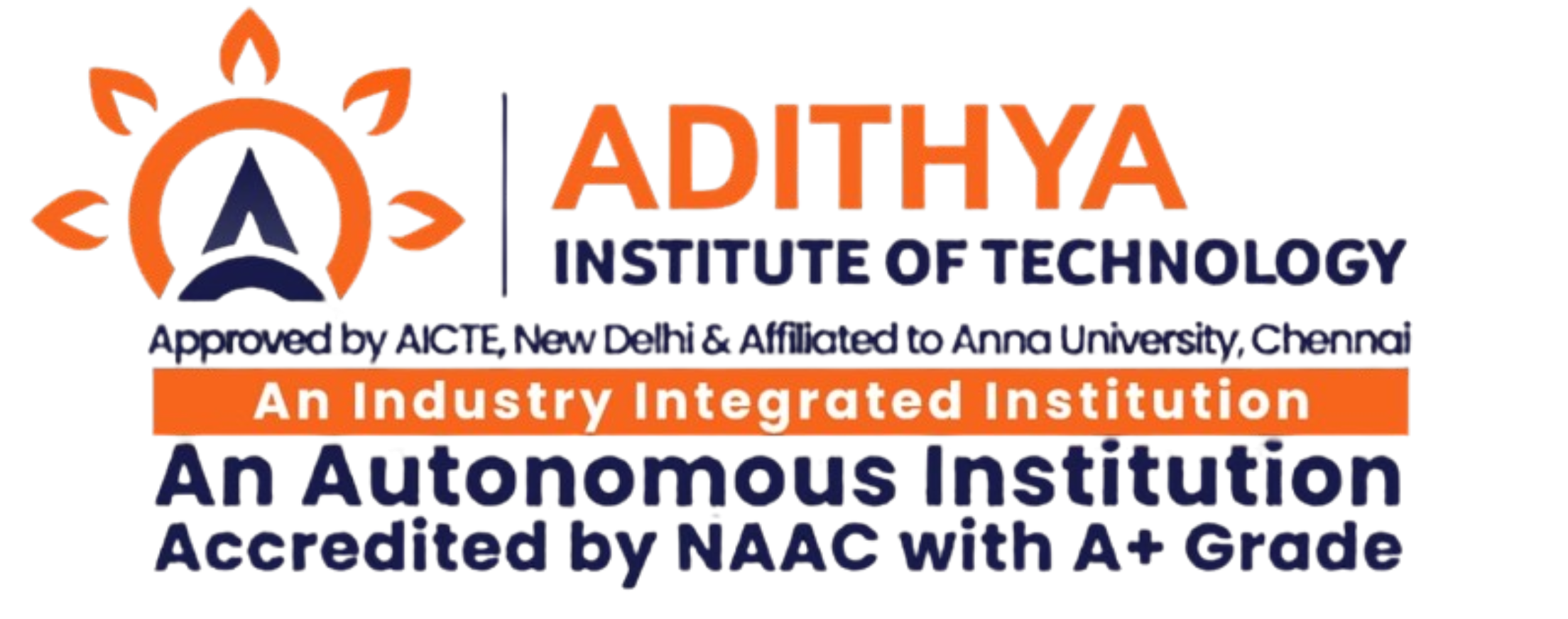PEO,PO’s,PSO’s – AI & DS
Programme Educational objectives (PEOs):
| PEO 1 | Graduates will be able to establish a solid foundation in technologies and research through projects and industrial training. |
| PEO 2 | Graduates should be able to work in a collaborative environment and comprehend the Ethical, Social, and Economic implications of their work. |
| PEO 3 | Graduates should possess the capacity to pursue Higher Education and continually expand their knowledge by actively participating in Conferences, Seminars, and related Activities. |
Programme Outcomes (PO’s)
After the successful completion of B.Tech Program in ARTIFICIAL INTELLIGENCE & DATA SCIENCE, the Engineering Graduates students will be able to
| PO 1 | Engineering knowledge: Apply the knowledge of mathematics, science, engineering fundamentals, and an engineering specialization to the solution of complex engineering problems. |
| PO 2 | Problem analysis: Identify, formulate, review research literature, and analyse complex engineering problems reaching substantiated conclusions using first principles of mathematics, natural sciences, and engineering sciences. |
| PO 3 | Design / development of solutions: Design solutions for complex engineering problems and design system components or processes that meet the specified needs with appropriate consideration for the public health and safety, and the cultural, societal, and environmental considerations. |
| PO 4 | Conduct investigations of complex problems: Use research-based knowledge and research methods including design of experiments, analysis and interpretation of data, and synthesis of the information to provide valid conclusions. |
| PO 5 | Modern tool usage: Create, select, and apply appropriate techniques, resources, and modern engineering and AI 7 DS tools including prediction and modelling to complex engineering activities with an understanding of the limitations. |
| PO 6 | The engineer and society: Apply reasoning informed by the contextual knowledge to assess societal, health, safety, legal and cultural issues and the consequent responsibilities relevant to the professional engineering practice. |
| PO 7 | Environment and sustainability: Understand the impact of the professional engineering solutions in societal and environmental contexts, and demonstrate the knowledge of, and need for sustainable development. |
| PO 8 | Ethics: Apply ethical principles and commit to professional ethics and responsibilities and norms of the engineering practice. |
| PO 9 | Individual and team work: Function effectively as an individual, and as a member or leader in diverse teams, and in multidisciplinary settings. |
| PO 10 | Communication: Communicate effectively on complex engineering activities with the engineering community and with society at large, such as, being able to comprehend and write effective reports and design documentation, make effective presentations, and give and receive clear instructions. |
| PO 11 | Project management and finance: Demonstrate knowledge and understanding of the engineering and management principles and apply these to one’s own work, as a member and leader in a team, to manage projects and in multidisciplinary environments. |
| PO 12 | Life-long learning: Recognize the need for, and have the preparation and ability to engage in independent and life-long learning in the broadest context of technological change. |
Programmed Specific Outcomes (PSO’s)
Engineering Graduates will be able to
| PSO 1 | Acquire, Analyze and Develop fundamental skills in the field of Artificial Intelligence and Data Science and in terms of underlying Computational principles and apply the knowledge to solve practical problems. |
| PSO 2 | Ability to implement Artificial Intelligence and Data Science techniques such as Data Exploration and Visualization, AI& ML, and Data Analytics in Real world problems and meet the challenges of the future. |
| PSO 2 | Demonstrate knowledge and proficiency in using various analysis Tools and Software Techniques related to Artificial Intelligence and Data Sciences. |


